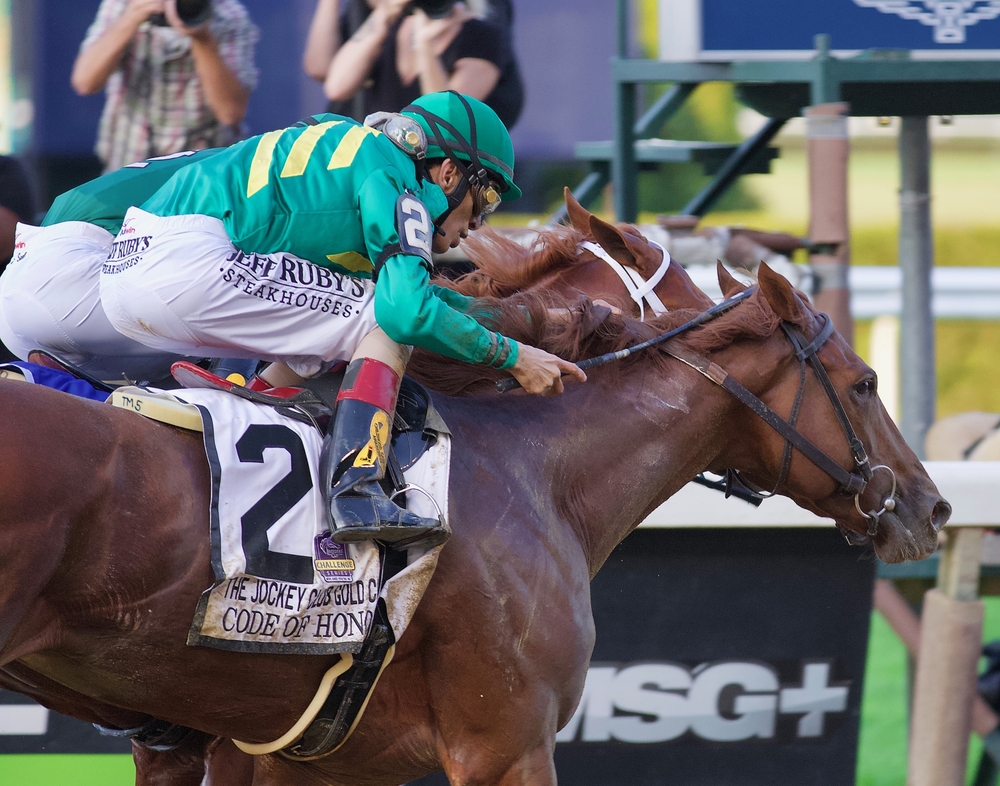In the dynamic world of betting, losing runs are an inevitable part of the experience that every bettor encounters, regardless of their level of expertise. These stretches of losses can be disheartening and may lead to questioning one’s betting strategies. However, understanding the mechanics and psychology behind losing streaks is crucial for maintaining composure and making calculated decisions.
A losing run can simply be defined as a consecutive series of bets that do not yield a win. Their occurrence is subject to the laws of probability and is a statistical certainty over the long term. While no bettor is immune to them, recognising that losing runs are a natural aspect of betting can reduce their psychological impact. Incorporating this understanding into a betting strategy helps maintain discipline and mitigate the risks associated with impulsive wagering. By adopting an analytical approach, bettors can assess their performance objectively and make improvements to their betting practices.
Key Takeaways
- Losing runs are a common aspect of betting and understanding them is key for psychological resilience.
- Acknowledging the inevitability of losing streaks can aid in developing better risk management strategies.
- An analytical approach to betting, focusing on data and statistics, can help improve long-term betting results.
Understanding Losing Runs in Betting
When engaging in betting, it’s essential to grasp that losing runs are inevitable regardless of the betting discipline, be it football betting or horse racing. These stretches are not just common but can also be quantified to some extent using mathematical analysis.
Defining Losing Runs and Probability
Losing runs, or losing streaks, occur when a bettor experiences consecutive losses over a period. Understanding the probability of these streaks is crucial for anyone involved in betting systems. The strike rate—the frequency of winning bets against total bets—plays a pivotal role in determining the likelihood and duration of a losing run. For instance, a betting system with a strike rate of 20% implies that on average, 2 out of every 10 bets will be successful. Therefore, the maths indicates expected losing streaks as part of the betting process.
The odds offered on bets also affect the probability of losing runs. A higher odds selection may suggest a lower probability of winning, thereby increasing the potential for longer losing runs. Conversely, lower odds indicate a higher chance of winning, suggesting shorter losing streaks on average.
Factors Influencing Losing Runs
Several factors can influence the length and frequency of losing runs in betting:
- Odds: The prices at which bets are placed largely govern the expected strike rate. Lower odds should theoretically lead to more frequent wins and hence shorter losing runs.
- Staking: The staking plan used by the bettor can have a significant impact. A more aggressive staking plan can exacerbate the effects of a losing run and should be approached with caution.
- Betting System: The system or strategy a bettor employs can dictate the risk of losing streaks. Some systems are inherently riskier, involving bets on higher odds and longer potential losing runs.
- Variability: Sports like football and horse racing come with their own set of variables that can impact outcomes. Analyzing patterns and past data can help in understanding the likely length of losing runs.
It’s imperative for bettors to recognise these factors and incorporate them into their betting strategy. This includes preparing for and managing potential losing runs to maintain a sustainable approach to betting.
The Impact of Losing Runs
Losing runs can significantly affect both the mindset of a bettor and the health of their betting bank. Understanding the nuances of these impacts is crucial for maintaining a sustainable betting strategy.
Psychological Effects on Bettors
The psychology of a bettor experiences a substantial strain during losing runs. They may encounter stress and discouragement, which can lead to hasty decisions and abandonment of sound betting strategies. This emotional tumult is often exacerbated by the expectation of profits, which when unmet, shifts the individual’s focus from process-oriented to result-oriented thinking. Such a mindset can cause one to overlook the importance of risk management and to potentially ignore vital betting insights that favour long-term success.
Financial Consequences for Your Betting Bank
The financial repercussions of a losing streak are directly tied to one’s betting bank. Consistent losses can deplete a bettor’s bankroll. For instance, without adequate reserve funds or a conservative betting strategy, the betting bank may dwindle, increasing the chance of complete loss of capital. Keeping a reserve bank is essential to weather the storm of losing runs and enable bettors to continue participating in betting markets with confidence. Smart bankroll management involves a clear and disciplined approach to staking and an understanding that losing runs, while challenging, are an intrinsic part of betting.
Mitigating Risks
In the context of sports betting, mitigating risks involves deploying effective staking strategies and focused bankroll management to protect against sustained losses and optimise potential profits.
Effective Staking Strategies
An effective staking strategy is crucial for managing risk in betting. Bettors should adopt a system that fits their risk tolerance and profit objectives. Two common staking plans include:
- Fixed Staking: Using a consistent stake size for each bet, typically a small percentage of one’s bankroll, can provide stability and simplify decision-making.
- Variable Staking: Adjusting stake size based on the confidence level and perceived value of a bet may increase profits but requires a more nuanced approach.
Bet size should be carefully chosen based on the individual’s risk appetite and the odds of the wager.
Risk Management and Bankroll Preservation
Bankroll management is about protecting one’s reserve bank to ensure longevity in betting. Key strategies include:
- Setting a Pre-Set Limit: Limit the maximum amount to be wagered in a given period, preventing emotional decisions during losing runs.
- Reserve Preservation: Keep a portion of the bankroll as a reserve to safeguard against unexpected downturns.
- Bankroll Segmentation: Divide the starting bank into units to foster disciplined betting and resist the temptation of over-staking.
Always remember that even with a robust staking strategy, losses are unavoidable. The goal is to minimise these losses and avoid depleting the betting bank.
Analytical Approaches to Betting
In the world of sports betting, success often hinges on rigorous quantitative analysis and the utilisation of advanced betting tools. Bettors can greatly enhance their chances by adopting a systematic approach to identify value bets.
Quantitative Analysis and Betting
Quantitative analysis in betting involves applying mathematical models to forecast outcomes and anticipate the likelihood of various sequences of wins and losses. A thorough analysis aims to understand the patterns that govern winning and losing streaks. Excel spreadsheets are frequently used to track and analyse data. Bettors should consider the statistical probability of sequences occurring. For instance, in the case of a 40% strike rate, one should anticipate the plausible scenarios of consecutive losses and plan their betting strategy accordingly.
Key aspects of quantitative analysis include:
- Data Collection and Management: Gathering historical sports data to analyse patterns.
- Mathematical Modelling: Utilising probability theory and statistical tools to evaluate betting odds.
- Anticipation of Sequences: Understanding that even with a sound betting model, losing streaks are statistically likely to happen and must be planned for.
Utilising Betting Tools and Software
Investing in the right betting tools and software can provide invaluable betting insights and contribute to a more disciplined betting strategy. Tools vary from simple spreadsheets for tracking bets to complex software capable of analysing vast datasets.
Effective tools provide the following benefits:
- Strategy Testing: Allows bettors to test various betting strategies against historical data to determine effectiveness.
- Loss Sequence Estimation: Helps in estimating the longest expected losing run, essential for stake sizing and bankroll management.
- Efficiency: Saves time by automating the data analysis process and providing quick insights.
By leveraging these analytical approaches, bettors can foster a more disciplined and data-driven approach to sports betting.
Improving Betting Practices
Success in betting isn’t just about celebrating wins; it’s equally about understanding and learning from losses. A strategic approach to reviewing losing bets can significantly enhance a bettor’s proficiency and long-term profitability.
Learning from Losing Bets
When bettors analyse their losing bets, they gain valuable insights into their betting strategy. Key Factors to consider include:
- Sample Size: Evaluate a significant number of bets to determine if a losing run is a result of poor strategy or normal variance.
- Record: Keeping a meticulous record allows for a detailed review of past bets, helping to spot patterns or recurring issues.
- Value Betting: Identifying whether each bet had value is crucial, as consistently betting on value is likely to yield profits over time.
Examination of their betting processes after losses should encourage bettors to refine their methods and decision-making criteria. They should ask if their approach aligns with proven statistical theories and if it accommodates enough data to justify the conclusions drawn.
Professional Tips and Tipster Services
Some bettors seek the expertise of professional tipsters or tipster services for a more informed betting approach. When selecting a tipster service, important considerations include:
- Track record: A tipster’s historical success and transparency in their results.
- Strategy: The underlying strategy of the tipster, ensuring it’s based on solid reasoning and not just short-term wins.
A table comparing different services can help bettors decide:
| Tipster Service | Win Rate | Strategy Focus | Transparency Level |
|---|---|---|---|
| Tipster A | 60% | Value Betting | High |
| Tipster B | 55% | Market Trends | Moderate |
| Tipster C | 65% | Statistical Analysis | Low |
Relying on a tipster service can provide structured advice, but it’s essential for bettors to remain critical and ensure that the tips align with a well-considered betting strategy and long-term goals.
Advanced Betting Concepts
In the realm of sports betting, grasping advanced concepts is crucial for enhancing profitability and maintaining a strong return on investment (ROI). Professionals employ a sophisticated understanding of betting systems and staking strategies to better navigate the inherent volatility of wagering.
Exploring Laying and Backing Dynamics
In betting exchanges, bettors encounter two fundamental options: laying and backing. Laying a bet involves taking the position of the bookmaker, where one stands to gain if the contestant or team loses. Conversely, backing is betting in favour of a particular outcome. A robust betting system frequently incorporates both strategies to balance risks and capitalise on different betting markets.
An adept laying strategy becomes particularly vital in horse racing, where the punter may identify overvalued horses and thereby profit from laying bets against them. On the other hand, football betting, including markets like the NFL, demands a keen perception of form, strategy, and conditions, where backing the more likely outcomes can lead to sustained gains.
Adapting to Different Sports Betting Environments
Each sports betting environment presents unique challenges and opportunities. Bettors must adapt their staking strategy to accommodate the fluctuations of the sport in question. For example, a common recommendation is to use a fixed percentage of one’s betting bankroll on each wager, which helps control the impact of losing runs and maintains a disciplined approach.
- NFL Betting: Given the structured nature of American football, analytics play a significant role. Bettors should consider defensive and offensive statistics, along with environmental factors like weather or injuries.
- Football Betting: It’s important to account for variables such as team form, historical performance, and player availability. Especially in live betting, where odds fluctuate rapidly, one’s staking strategy needs to be both flexible and robust.
- Horse Racing: This environment requires an acute awareness of each horse’s track record, conditions on the day, and their performance on different surfaces. A strategic approach to both lay and back bets can optimise ROI over the long term.
In conclusion, advanced betting requires a meticulous approach to both laying and backing dynamics, as well as a versatile strategy that adapts to the nuances of each sporting event. Whether dealing with the precision of the NFL or the unpredictability of horse racing, the bettor’s advanced knowledge can be the difference between loss and profitability.
Expectations vs. Reality in Betting
In the context of betting, a clear understanding of the difference between expectations and the harsh reality of winning and losing sequences is vital for long-term success. The psychology of betting is intrinsically linked to managing expectations and preparing for variances in results.
Common Misconceptions about Winning and Losing
Many individuals approach betting with the misconception that a high strike-rate equates to a low chance of experiencing a long losing sequence. However, the reality is that even with a 40% strike-rate, there is a notable chance of encountering a losing streak that could stretch to 10 consecutive losses. The possibility of longer losing sequences exists, with 50% and 25% chances of hitting 12 and 14 bet losing runs, respectively. This misunderstanding of the nature of chance and winning probabilities often leads to undue disappointment and abandonment of strategies.
It is also a common fallacy to conflate short-term success with long-term profitability. Reserve bank management is frequently overlooked, wherein bettors fail to maintain adequate funds to withstand bad runs. Instances of what bettors may label as “bad luck” are often simply the result of statistical variance playing out.
Setting Realistic Goals and Understanding Variance
Setting realistic goals in betting entails acknowledging variance and the longest losing sequence one might encounter. This knowledge allows bettors to strategically manage their betting bank and maintain a level head during bad runs. A bet’s chance of winning does not guarantee immediate results; rather, it is indicative of potential long-term outcomes.
To safeguard against the psychological impacts of losing sequences, it’s imperative that bettors plan and ensure they have a robust reserve bank to absorb potential losses. A realistic approach pars expectations with the stark reality that even with a solid strategy, the longest losing sequence could be more extensive than one anticipates.
By understanding and accepting these facts, bettors can develop the psychological resilience required to adhere to their betting approach, maximizing the potential for long-term profit despite the inevitable swings inherent in betting ventures.
Conclusion
In the context of betting, every wager carries with it a risk of a losing run. It is crucial that a bettor recognises the inevitability of this phase and prepares strategically. To mitigate the financial impact, they should manage their betting bank sensibly, often a core principle within a pro gambler blueprint. Diversifying the types of bets and adhering to a well-formulated betting strategy can balance the risk.
Members of forums or communities such as the Smart Betting Club benefit from shared wisdom and experiences, which can be vital in understanding the dynamics of losing runs. Learning from fellow bettors and experts contributes to a more refined approach to wagers. It is imperative for bettors to conduct regular reviews of their strategies, ensuring they remain effective and resilient.
Here are some action points for bettors:
- Record Keeping: Maintain a log of all wagers and outcomes to track patterns and identify areas for improvement.
- Betting Bank Management: Allocate funds wisely, setting aside a reserve to endure potential losing streaks without jeopardising one’s financial stability.
- Education: Invest time in learning from credible sources and experienced bettors to enhance betting acumen.
Resilience in the face of losses and the ability to adhere to a disciplined approach separates the successful bettor from the rest. With a clear understanding of the nature of losing runs, bettors can approach gambling activities with a level-headed and strategic mindset, maximising the potential for long-term success.
Frequently Asked Questions
This section addresses common queries related to coping with losses in betting, understanding their causes, and strategies to manage and possibly reduce them.
How can one cope with losses in betting?
Individuals can manage losses by maintaining a disciplined approach to betting, such as setting a budget and sticking to it. Taking a break after a losing streak can also help to reset one’s mindset and avoid further losses due to tilted decision-making.
What are the reasons behind frequent losses in betting?
Frequent losses may result from a lack of understanding of betting strategies, poor bankroll management, or simply because of the inherent unpredictability within betting markets. Bettors often underestimate the odds of losing streaks occurring, which can lead to misjudged risk levels.
Is there a strategy to ensure betting without facing losses?
There is no strategy that can guarantee a bet without the risk of losses. Betting always involves a degree of risk, and one should be prepared for the possibility of losing as part of the process.
What does the ‘cut loss’ strategy entail in the context of betting?
The ‘cut loss’ strategy involves setting a limit on how much one is willing to lose in a bet and stopping once that limit is reached. This helps to prevent further losses and is a fundamental aspect of risk management in betting.
Can utilising paid betting tips improve the likelihood of success?
While paid betting tips can provide expert insights, they do not guarantee success. It is crucial to evaluate the track record and reliability of the source. Paid tips should complement, not replace, thorough research and sound judgement.
What long-term betting strategies contribute to consistent winning?
Long-term strategies that contribute to consistent winning include researching games, learning about the sports one is betting on, and developing a system with a positive expected value. Bankroll management and the application of a staking plan based on one’s available funds and betting style are also key to long-term success.





